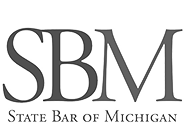Courtworks Platform
Who Has Access To The Courtworks Platform?
CourtWorks is designed to help the stakeholders in defendant supervision communicate with each other in an effective way, so stakeholders can access the platform. The stakeholders in this context are:
- The Courts Themselves: This includes judges, clerks, court administrators, probation officers, and anyone else that actually works inside the court system.
- Defendants: People who have been charged or convicted of a crime and are being supervised by the Court.
- Third Party: Agencies which support the courts and the defendants, such as drug testing companies, therapists, community service organizations, or anyone else that helps the defendants with compliance terms and/or the Courts with supervision.
At What Point In A Defendant’s Case Are They Given A Profile And Access To The Courtworks Platform?
When a defendant is arrested and charged, they have to be arraigned. Arraignments can happen in person in the Court, through video calls. This basically consists of the Court reading the defendant their charges, and setting a bond (bail) upon their release.
More Information About The Courtworks Platform:
- What Are Some Other Features Of The Courtworks Platform?
- Additional Information On Courtworks Platform In Michigan
It should be noted that there is a big push in Michigan for bail reform (along with the rest of the country), because simply put, the poor and minorities tend to have the least access to money for bail and therefore the least access to bail release. However, as of right now, there is still inequities in our bail system that is malfunctioning in this Country.
CourtWorks supervision is initiated once the defendant is arraigned. In an increasing number of cases, the CourtWorks system can be used in place of bail. In those eligible cases, a defendant may be able to be released without a money bail, on the sole promise of checking in with the CourtWorks system. If a defendant who made that agreement doesn’t check in with the CourtWorks system, it will be considered a violation of their probationary release, and a warrant can be put out for their arrest.
The CourtWorks system gives the Court unprecedented levels of access to a defendant through email and text technology. It makes it far easier to communicate with on a much more reliable basis than if they were simply let go on some type of money or personal bond.
At What Point Can Court Personnel And Other Stakeholders Access The Courtworks Platform?
Once a defendant has been arraigned, a pre-trial or probable cause hearing is set, which is a preliminary hearing with the Court. Traditionally, these hearings used to always be in person, however, post-COVID, many courts are using video conference technology such as zoom as well to conduct many hearings in court.
If there’s some adjudication on the defendant where they plead guilty or are found guilty, then they will usually be put on some type of probation supervision. CourtWorks allows the defendant to have virtual access to that hearing as well as many other parts of a typically in-person probation program. Many defendants working with the CourtWorks system only have to appear in-person once a month, in order to meet with their probation officer.
Defendants can also use CourtWorks to report all of their information prior to meeting with their probation officer, which makes it much easier for the probation officer to supervise their clients. When the probation officer has the up-to-date information on every defendant before each meeting, then the meetings take far less time and energy. This also allows probation officers to sufficiently examine each defendant’s paperwork before they even come in, which tends to make it easier for them to catch any errors and saves additional time.
Many of the courts are now using CourtWorks for virtual reporting, especially during the ongoing COVID-19 era. We have been helping Michigan courts adopt the program over the past few years, and many have seen the tremendous difference it can make for both the defendants and the courts themselves.
For example, we had one court with 1,200 defendants that were all reporting in-person prior to the pandemic. Once the pandemic hit, the court was shut down for 6 months. It took us three weeks to convert all 1,200 defendants on probation from in-person to virtual meetings. After those three weeks, the defendants continued their probation virtually without missing a beat. Most defendants made their reporting requirements, without missing appointments during that time.
Having test cases like these has been hugely beneficial in our ability to show courts that it’s possible to improve and update. We are showing courts how to come out of the 1900s and into the 21st century. Other courts can look at the test cases where CourtWorks has been used, and can see where they might be able to use the same type of platform, especially in times of crisis. It’s also possible to create a hybridized system. Many courts use virtual reporting in addition to their in-person reporting.
Increasingly, it does seem that virtual methods are replacing many defunct in-person or analog methods of data/record retrieval, information sharing, communication, virtual conferencing and scheduling.
One example is non-reporting probation. Previously, defendants on non-reporting probation would have to send in postcards regularly from around the state or country in order to show that they haven’t moved. CourtWorks and similar interfaces can be accessed by defendants online, where they can report in as they would normally do with the postcards, but with a trackable IP addresses. This interface actually gives the probation officer far more information with more verification about where someone is reporting from.
For more information on Access To The CourtWorks Platform In MI, a free initial consultation is your next best step. Get the information and legal answers you are seeking by calling (800) 710-0529 today.
Awards and Accolades



